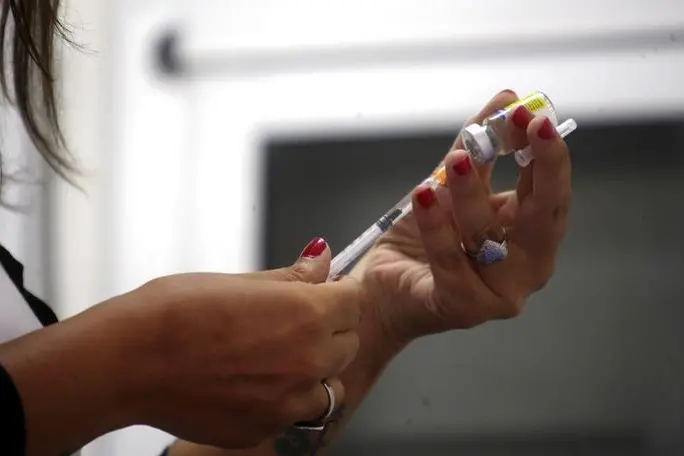PHOTO
A 'catch up' system ensures that residents are reminded to immunise their child as soon as possible if a date has been skipped, said an official from the Dubai Health Authority (DHA) to stress on the importance of immunisation, during the ongoing World Immunisation Week.
Dr Nahed Monsaf, director of the Health Affairs Department at the authority, said that sometimes, people forget to bring their children in time for vaccination due to their busy lives. "So, we have this catch up system which identifies defaulters and reminds them to bring their child for immunisation as soon as possible," she said.
Since there has to be a gap between each vaccination, this system has a different schedule for defaulters. "We give them a time period of two weeks and after that we consider them defaulters," she said, adding that staff then makes personal follow-ups to remind parents that their child is due for vaccination.
She also said that the approach towards vaccination had changed over the years and currently, the authority covered 91 per cent of children in the UAE.
"People are much more open now and they believe that vaccination is good for their child," she said. The authority also covers 71 per cent children in school, while the remaining are either vaccinated in ministry health centres or in private clinics.
Earlier this year at the Arab Health conference, the authority displayed its Hasana project, yet to be launched officially. Under the project, the authority will create a unique immunisation record for each individual in Dubai to improve preventative care.
The initiative will provide access to unified immunisation records at any facility and will ensure availability of relevant data. The immunisation management system will have a host of features such as immunisation schedules and eligibility, immunisation planning and management, adverse effects and mass immunisation campaigns.
It will also help in outbreak management: prevention, monitoring, management and analysis of outbreak cases and also help in investigation management: identification, investigation, and management of cases and contacts. It will help in tracking clinical data related to investigations, signs and symptoms and treatment plans, and will also provide a smart application to manage and administer school mass immunisation campaigns.
This year's World Immunisation Week campaign, marked from April 24 to 30, aims to highlight that protecting entire communities with vaccines protects everyone.
The theme of this year's campaign is 'Protected Together, #VaccinesWork'.
Immunisation is one of the most successful and cost-effective health interventions. Studies show that every $1 spent on childhood immunisation returns $44 in economic and social benefits. "Several countries in the region, including some affected by emergencies, have succeeded in maintaining strong immunisation programmes," said Dr Jaouad Mahjour, acting World Health Organisation regional director for the Eastern Mediterranean.
Copyright © 2018 Khaleej Times. All Rights Reserved. Provided by SyndiGate Media Inc. (Syndigate.info).





















